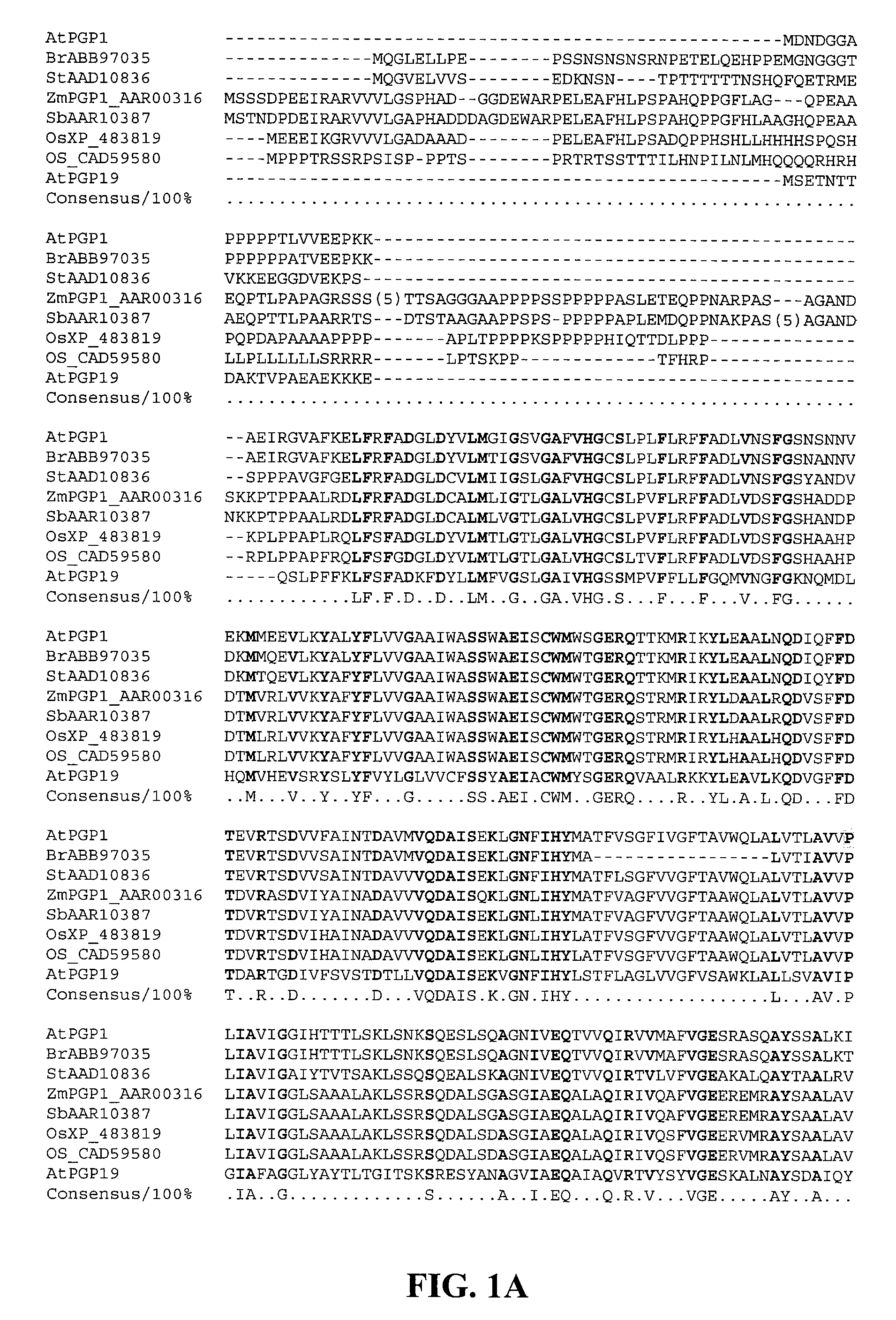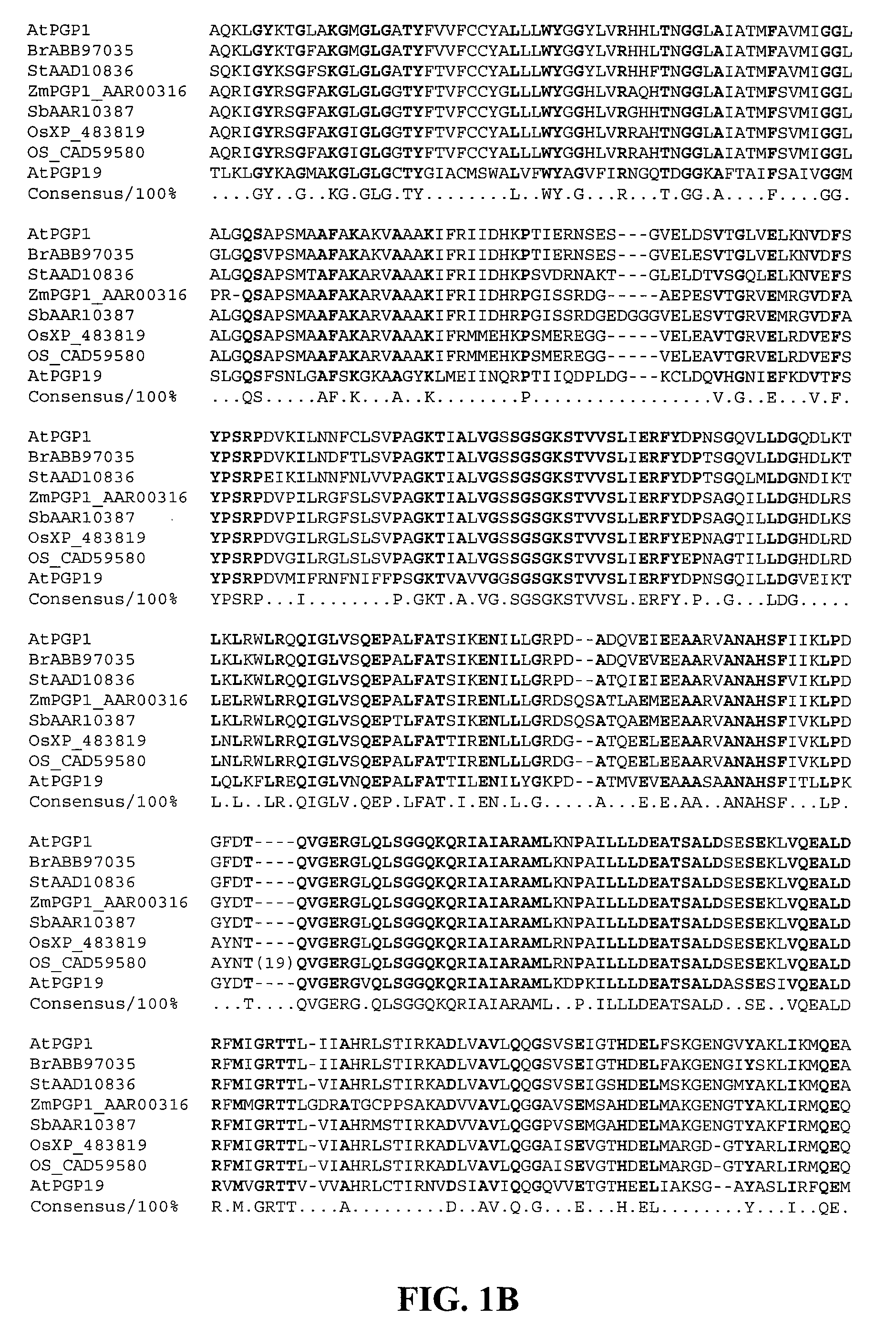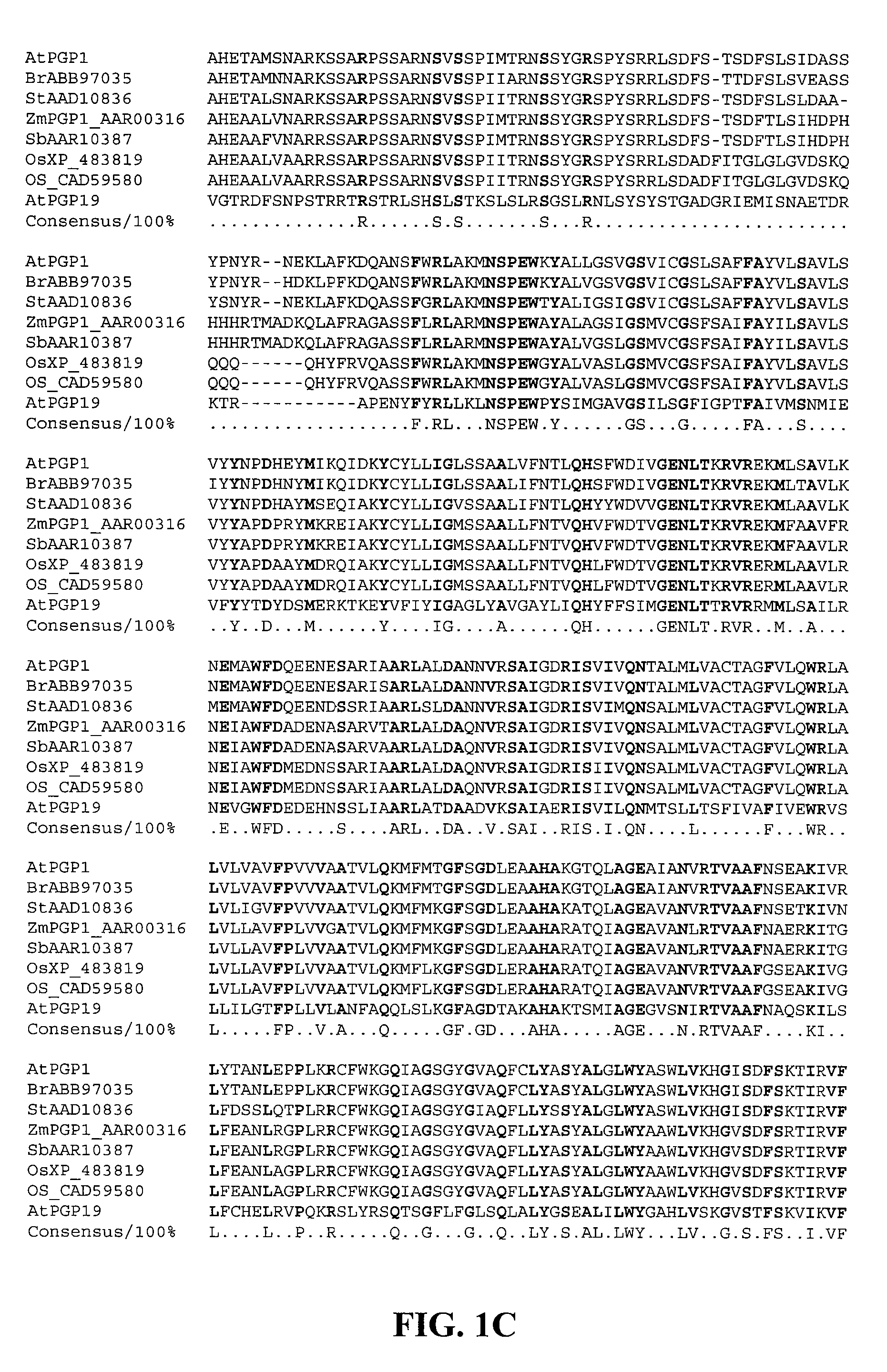Products and Methods for In Vivo Secretion of Monatin
a technology of in vivo production and monatin, which is applied in the direction of biocide, heterocyclic compound active ingredients, transferases, etc., can solve the problem that the method by which monatin is produced in the plant is presently unknown, and achieve the effect of increasing amino acid transpor
- Summary
- Abstract
- Description
- Claims
- Application Information
AI Technical Summary
Benefits of technology
Problems solved by technology
Method used
Image
Examples
example 1
Induction of the AcrAB Efflux Pump Increased Monatin Transport
[0113] The AcrAB TolC system of Escherichia coli is a multidrug efflux pump composed of a cytoplasmic membrane component / proton antiporter AcrB and a periplasmic accessory protein AcrA. Accession numbers for AcrA and AcrB are AcrA (protein, NP—414996, DNA, NC—000913) and AcrB (protein, NP—414995, DNA, NC—000913). The cell uses this system to pump out a wide variety of antimicrobial compounds, including antibiotics, detergents, dyes, and organic solvents directly into the medium through TolC, an outer membrane channel. The AcrAB genes are inducible by addition of sodium decanoate. Zgurskaya, H. I., and Nikaido, H., Proc Natl Acad Sci USA 96:7190-7195, (1999).
[0114] A preliminary study with E. coli BL21 DE3 was done that determined that 2.5 mM sodium decanoate addition to the medium resulted in tolerance to 80-160 μg / ml novobiocin. This was taken as evidence that acrAB genes are induced with sodium decanoate addition and ...
example 2
Induction of the EmrAB Efflux Pump Increased Monatin Transport—E. coli and C. glutamicum
[0118] A multidrug efflux pump is encoded by the emrB gene, the EmrB efflux pump (GenBank Accession Number NP—417171, DNA NC—000913). Lomovskaya, O., and Lewis, K, “emr, an E. coli locus for multidrug resistance,”Proc. Natl. Acad. Sci. USA 89:8938-8942, (1992). The emrB gene can be upregulated by addition of the inducer carbonyl cyanide 3-chlorophenylhydrazone (“CCCP”) to the growth / fermentation medium. Lomovskaya O., et al., “Differential regulation of the mcb and emr operons of E. coli: Role of mcb in multidrug resistance,”Antimicrob Agents Chemother. 40:1050-1052, (1996). This example shows increased monatin efflux as a result of CCCP treatment.
[0119] The strains used for the experiment included E. coli MG1655::aspC / proA / pProNde and E. coli BL21 (DE3)::aspC / proA / pET30. For inoculum, the E. coli strains were grown overnight at 37° C. and 250 rpm in Luria-Bertani (“LB”) medium with 50 μg / mL ka...
example 3
Knockout of E. coli emrB and acrAB Genes to Test Impact on Monatin Transport by the EmrAB and AcrAB Transporters Respectively
[0123] Primers were designed to create the desired knockout product by PCR from template pKD3 as described. Datsenko K. A., and Wanner, B. L., “One-step inactivation of chromosomal genes in Escherichia coli K-12 using PCR products,”Proceed. Natl. Acad. Sci. USA, 97:6640-6645, (2000).
[0124] emrB Knockout Primer Sequences:
E. coli EmrBF(5′AAGCTAACGCTGGCTAATCCAGAGGTGCGTGTGATGGTGTAGGCTGGAGCTGCTTC-3′);E. coli EmrBR(5′ -AAAGCCAGTTCAAATGAACTGGCTTAGTTGTACTTACATATGAATATCCTCCTTA - 3′);
[0125] acrAB Knockout Primer Sequences:
E. coli AcrAF(5′-GACCAATTTGAAATCGGACACTCGAGGTTTACATATGAGTGTAGGCTGGAGCTGCTTC -3′);E. coli AcrBR(5′-CTTACGCGGCCTTAGTGATTACACGTTGTATCAATGATGCATATGAATATCCTCCTTA -3′)
[0126] The PCR products for deletion of emrB and acrAB genes were amplified using the following PCR protocol. In a 100 μL reaction, 100 ng of template (pKD3) (Datsenko, K. A., and Wanner,...
PUM
| Property | Measurement | Unit |
|---|---|---|
| volume | aaaaa | aaaaa |
| volume | aaaaa | aaaaa |
| volume | aaaaa | aaaaa |
Abstract
Description
Claims
Application Information
 Login to View More
Login to View More - R&D
- Intellectual Property
- Life Sciences
- Materials
- Tech Scout
- Unparalleled Data Quality
- Higher Quality Content
- 60% Fewer Hallucinations
Browse by: Latest US Patents, China's latest patents, Technical Efficacy Thesaurus, Application Domain, Technology Topic, Popular Technical Reports.
© 2025 PatSnap. All rights reserved.Legal|Privacy policy|Modern Slavery Act Transparency Statement|Sitemap|About US| Contact US: help@patsnap.com



